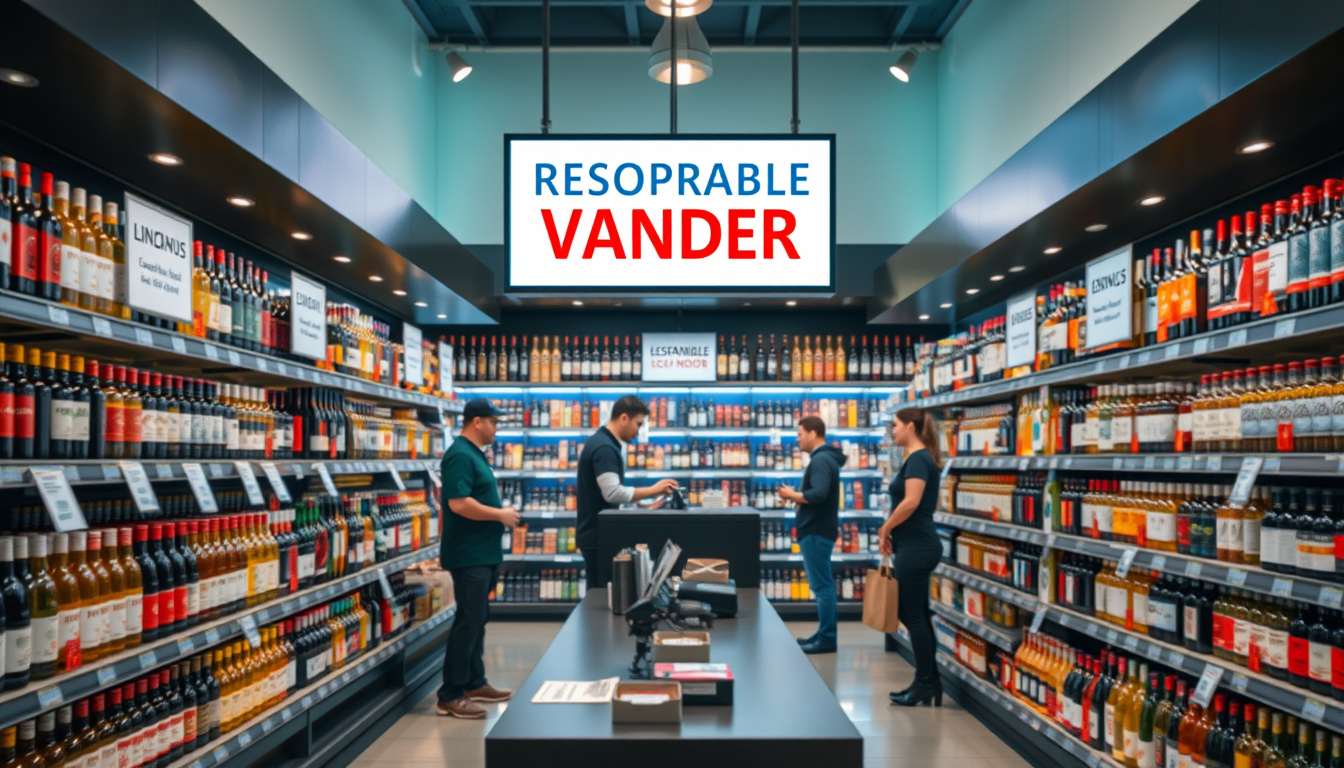In today’s regulated alcohol sales world, becoming an LSB Responsible Vendor matters. Businesses follow rules and teach buyers safe drinking. The Licensed Sales Branch (LSB) program gives training and guidelines. It helps servers, retail workers, and managers know what to do. The program stops legal risks and builds safer communities.
In this article, we explore key rules for alcohol sales under the LSB program. We show how to learn your duties and use best practices. This guide gives clear tips for vendors who must follow the rules and work safely.
Understanding the Role of an LSB Responsible Vendor
An LSB Responsible Vendor is a licensed business or person. That person ends training and follows the LSB protocols. They do not sell to minors. They do not serve already drunk people. They keep good records. The goal is to support honest alcohol sales.
The LSB program covers:
• Legal rules for selling alcohol
• Ways to spot fake IDs and drunken signs
• How to say no politely
• Record-keeping and reporting tasks
• Best checks on customer habits
Using these rules, the program helps vendors cut alcohol harms and protect their community.
Key Strategies for Effective Alcohol Sales Compliance
1. Comprehensive Staff Training
Vendors must train every worker who handles alcohol. This rule covers servers, bartenders, cashiers, and managers. Training must update with new LSB rules.
• Teach workers to spot signs of drunkenness
• Show the legal risks of bad sales
• Use role-play to build confidence in saying no
• Use videos, quizzes, or interactive tasks
When staff feel strong in their skills, they work with care.
2. Verification of Customer Age Using Reliable Methods
Vendors must check the age of every alcohol buyer. This step stops sales to minors.
• Ask for government-issued photo IDs
• Train workers to find spot-on IDs and fake ones
• Use scanning devices when allowed
A zero-tolerance rule on missing IDs helps vendors stick to the law.
3. Identify and Refuse Service to Intoxicated Customers
Selling to someone visibly drunk is both illegal and dangerous. Vendors learn to see signs of intoxication and to refuse service.
• Look for slurred speech and clumsy movements
• Train on firm yet calm refusal methods
• Stay polite even when saying no
• Write down refusals if LSB rules ask for it
This practice keeps both the business and the public safe.
4. Maintain Proper Documentation and Reporting
Good records show a business has followed the rules. Vendors must track:
• Dates of most recent staff training
• Reports of when sales were refused
• Records of audits or LSB inspections
Regular self-checks and quick reports of mistakes show a true commitment to the rules.
5. Implement Clear Policies and Standard Operating Procedures (SOPs)
Each vendor must write down clear rules. These rules set roles and tasks that meet LSB standards.
• Write clear steps for checking age, saying no, and handling fights
• Summarize training routines for new and returning staff
• Set up easy ways to share problems or rule breaks
Good documents help all workers follow the same plan and lower mistakes.
Benefits of Being an LSB Responsible Vendor
Following the LSB program brings many rewards:
• Legal protection: Lowers risks of fines or license loss
• Community trust: Builds your good name as a safe seller
• Safer environment: Cuts alcohol accidents and incidents
• Enhanced staff confidence: Lets workers act smart and safe
These benefits help alcohol sellers run a steady and respectful business.
Practical Tips for Maintaining Ongoing Compliance
Here are practical steps to stick to LSB rules:
- Hold regular training updates for all staff.
- Post reminders about alcohol laws in employee areas.
- Do regular reviews and role plays at work.
- Create an open space for staff to share worries without fear.
- Keep up with LSB rule changes and update your plans fast.
FAQ Section
Q1: What does it mean to be an LSB Responsible Vendor?
It means you are a licensed seller who has finished the required training. You must follow the rules to avoid unlawful sales, like selling to minors or drunken people.
Q2: How can I verify a customer’s age effectively under LSB rules?
Ask every buyer for a government-issued photo ID if they look young. Train your staff to spot real IDs and spot fakes.
Q3: What are common reasons an LSB Responsible Vendor might lose compliance?
You may lose compliance if you sell to minors or intoxicated people, if you fail to keep training records, or if you do not log refusals. Regular training and clear rules can help stop these problems.
Conclusion
Becoming and staying an LSB Responsible Vendor is more than having a license. You must train your team, check buyers’ ages, say no when needed, and keep good records. Using these clear steps, alcohol sellers can follow the law, protect people, and build a safe drinking culture. Stay informed and act quickly to keep in good standing with the Licensed Sales Branch. For more details, visit the LSB website to get the latest training and program guides (source).



